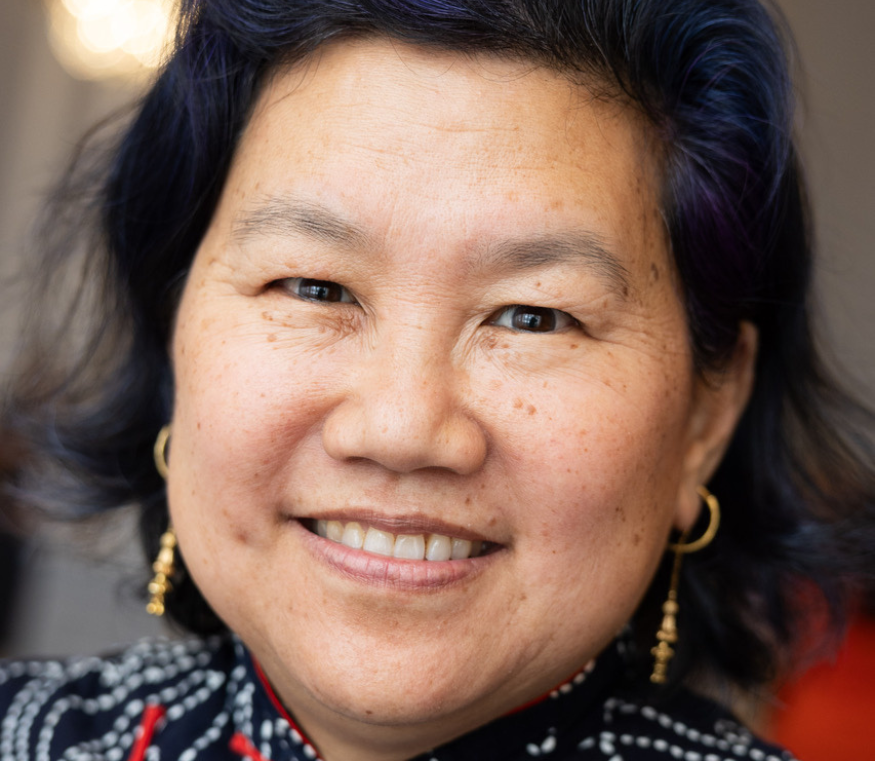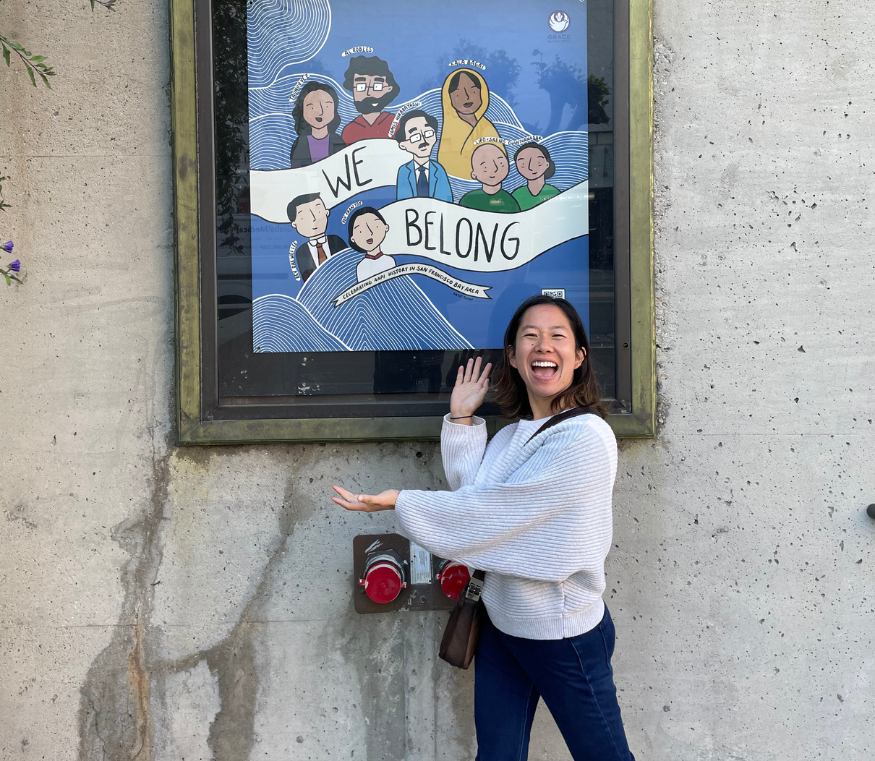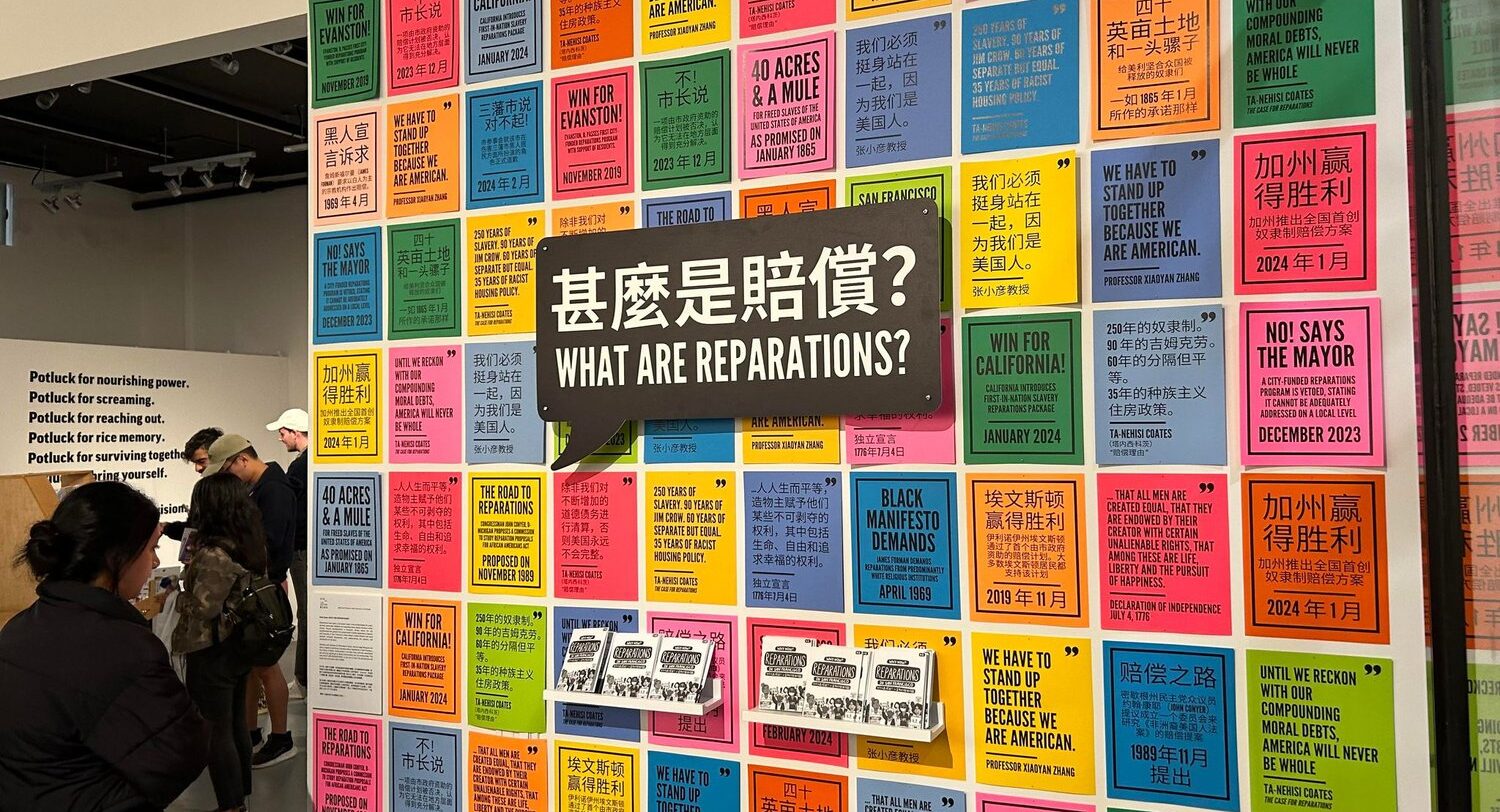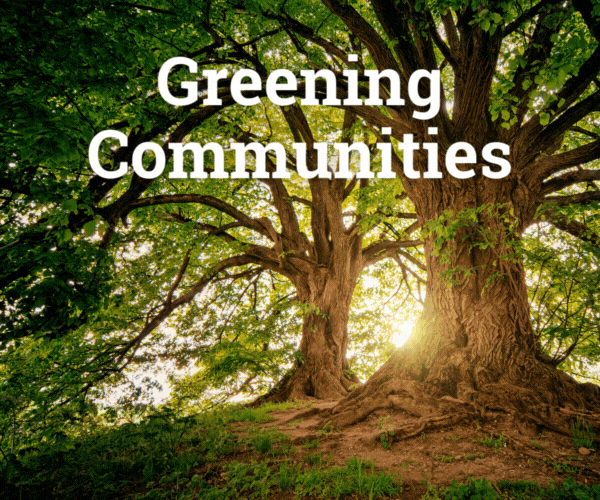Jun Nucum | Philippine News
SAN FRANCISCO – “We don’t use the words ‘Stop Hate,’ but this entire exhibit is about uplifting stories about Asian American folks that often don’t get heard,” said Miko Lee.
Lee, programs director of the Asian Americans for Civil Rights and Equality (AACRE), was referring to the eight-month-long Asian art exhibition in San Francisco that has attracted art enthusiasts and middle school students alike.
“Walking Stories,” which opened on June 29, is running through the end of February 2025 at the art hub Edge on the Square in the city’s Chinatown.
A collective effort of visual, oral and movement-based storytelling from 37 Asian American artist-activists, the show challenges anti-AAPI public narratives and examines the storied nature of human behavior, exploring how individuals may be perceived as embodied “walking stories” constantly evolving per their circumstance through interactive installations, video, performance, photography and zines.

The show, put on by Asian Americans for Civil Rights and Equality (AACRE), is the result of two-year effort by the social justice group network to build narratives that reinforce values of togetherness and justice against discrimination across Asian American communities.
The featured artists include Dohee Lee and her crew of dancers from Asian Refugees United; Farhana Sobhan from Alliance of South Asians Taking Action; Katie Quan from Chinese for Affirmative Action; Miko Lee from APEX Express; Mia Nakano from Visibility Project working in conjunction with Related Tactics; Trần Châu Hà from Asian Prisoner Support Committee; and Tsim Nuj Vang and Luna Her from Hmong Innovating Politics.
“These multimedia ‘artivists interrogate prevailing stories and their ramifications, prioritizing stories that cultivate interconnectedness, empathy and invested involvement in the world around us,” said Lee. “As individual and collective ‘walking stories’, every story we create creates us. After all, we are shaped by our shaping of the world, which is perpetually shaped again in turn.”
“We don’t use the words “Stop Hate” but the entire exhibit is about uplifting stories about Asian American folks that often don’t get heard,” added Lee.
The show’s opening night saw over 500 people, while a night market held during the second Friday of each month brings about 1,000 visitors. During the school year, middle school students also come each Wednesday, partaking in AAPI-related lesson plans that organizers have developed to complement the exhibit.
As a 4th generation Japanese American queer woman of color, daughter of a single mother, and sister of a deaf adult, artist Mia Nakano uses her work in the exhibition to reflect the role potlucks have played within queer Asian American social justice groups as a site of connection.

Her work Nourishing Power, a collaborative piece with art collective Related Tactics, offers an array of takeaway tools for interconnectedness that audiences can carry into the world and enact, including prompts, objects and recipes for social action.
Another piece in the exhibition, We was girls together by Trần Châu Hà, is a zine portraying the life of Maria Legarda, a re-entry consultant from Asian Prisoner Support Committee. Maria’s story is one of many: she is a survivor of gender-based violence, forced to migrate to the United States due to the economic consequences of Western imperialism in the Philippines.
Migrant women like Maria experience the compounding forces of colonialism, border exclusion, and economic exploitation in the United States, making them even more vulnerable to abusive relationships, as the zine describes. Hà’s work seeks to honor Maria’s story alongside that of her community of incarcerated women, documenting their solidarity campaigns, mutual aid projects and life-affirming relationships to one another.
Fifteen community storytellers have already created artistic responses to the exhibit with the tag #AACREsWalkingStories, through mediums including a podcast, videos, poetry, animation and painting.
AACRE, the show’s host, was among the 44 Bay Area organizations awarded grants under the California Department of Social Services, per its Stop the Hate program to address hate and violence through community engagement activities.
“Like AACRE, our approach seeks to address the complete systems, pathways and precursors to violence rather than focus on a short-term solution,” said Vanessa Veak, Stop the Hate coordinator at Asian Health Services, a community health center in Oakland who awarded the state funds.
“A core commonality is that both AHS and AACRE believe in the power of creating a narrative of greater strength from our collective work,” she added.
One of the artists in the show, Katie Quan, is also an Asian American studies instructor who teaches her students in the current context of rising Asian hate that, like many other groups, Asians have faced prejudice for centuries, long before the pandemic — from riots, to lynchings, to the Chinese Exclusion Act, which barred Chinese and later other Asian groups from entering the U.S..
“However, when the pandemic began, it was as if the fear and paranoia from our history books became a harsh reality for many, especially those living in the Bay Area,” explained Quan. “In the media and on the streets, there were constant reports of people being threatened, spat on, beaten, and even killed. After witnessing these events repeatedly, students became jaded, making it difficult to address these issues as an instructor. It was heartbreaking.”
“My work as an artist is to disrupt that cycle,” she continued. “Through my illustrations and comics, I bring these stories to light, often adding a touch of humor. My art connects these moments to history, bridging what we learn in classrooms with our lived experiences. I also aim to unite communities, as our education often happens in silos, leaving us to understand the interconnectedness of our struggles only later in life.”
In being invited by AACRE to join the exhibition, artists like Quan were enjoined to tell stories that resonate deeply across communities, not only their own.
Partnered with Chinese for Affirmative Action (CAA), her installation and zine “What Are Reparations?” addresses the ongoing discussion about reparations for Black communities in San Francisco in the context of decades of systemic injustices, from unfair policing and redlining to displacement in the name of “urban renewal.”
The piece treats problems like low-wage employment or underemployment, segregated neighborhoods, and homelessness not as discrete issues, but as part of a larger, centuries-old system which is the historical legacy of slavery.
“Personally, I resonated most with this exhibition’s message of solidarity,” she said. “While I grew up in San Francisco, my world was a very small bubble. I wish I had seen an exhibition like this as a kid. This exhibition does a great job in sharing the many interests and intersections of Asian America, including the fight for Palestinian liberation, refugee support, Black reparations, prisoner advocacy, and more.”
“My hope for this project is that people will not only want to learn more about Black history in their own areas, but are willing to become allies in the issue,” Quan explained. “Reparations don’t only impact Black communities, but us all.”
“We live in a society that tells us there is not enough of everything and therefore, that we must turn against one another,” she continued. “That in an age of Black Lives Matter and Stop Asian Hate, we can only care about one group more. However, this is not true. If our government invests in us and we invest in each other, we can all rise together.”
“The rise in anti-Asian sentiment reminds us that our fight is not isolated,” Quan added. “We all want love, health, and safety. By looking beyond our individual needs, we recognize that others share these same desires, and we stand a better chance of achieving them together than apart.”
This resource is supported in whole or in part by funding provided by the State of California, administered by the California State Library in partnership with the California Department of Social Services and the California Commission on Asian and Pacific Islander American Affairs as part of the Stop the Hate program. To report a hate incident or hate crime and get support, go to CA vs Hate.






